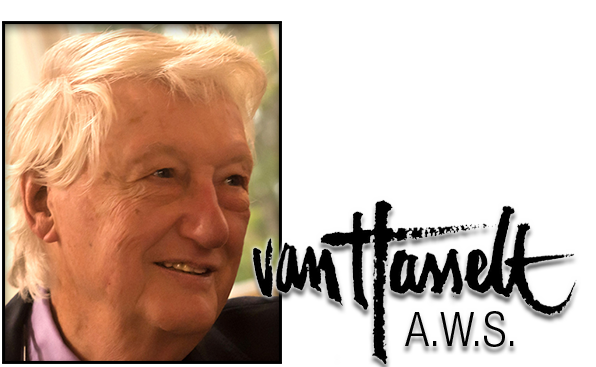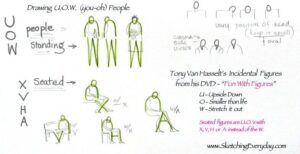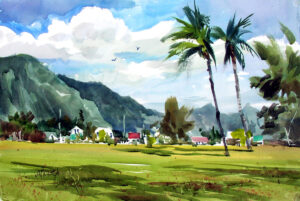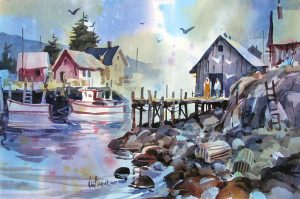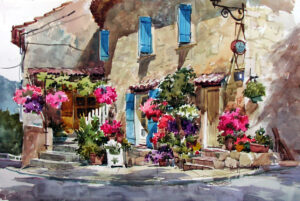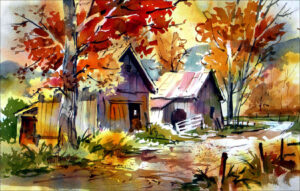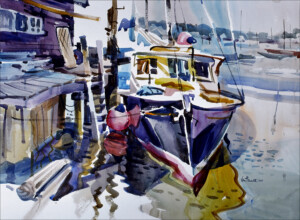Living with the UWO Tribe
For my father, his workshops were his passion. He enjoyed the camaraderie of fellow painters who had traveled with him to various locales over the years. He had no plans for retirement, and I believe had he been able to do so, he would have continued to travel and teach to the end of his life.
COVID-19 ended his workshops as travel restrictions came into effect. Like so many people, he suddenly found himself without work. Many of his students were past retirement age and considered vulnerable to the virus. Even without the restrictions, who would sign up for a painting workshop when the world was seemingly falling apart before our eyes?
When I last visited my father in the fall of 2021, he had clearly lost a lot of the exuberance and energy that he always had. Most of his decline can be attributed to age, but the stress of his career vanishing before his eyes and the COVID lockdown certainly played a role.
One afternoon when I visited him, we walked together by the marina in Boothbay. With a wave and smile, he acknowledged passers-by who knew him but then quietly admitted to me that he wasn’t sure if he knew their names. Anyone who has had a relative with age-related memory loss can appreciate how this hit me.
As we ended our walk, we sat to have a drink at a cafe. My father told me that if there was one thing he was proud of, it was the UWO people, as he called them. Those of you who had the opportunity to learn from him probably know all about this simple magic trick he would perform, conjuring people on paper with a dab of paint and some quick calligraphic brush strokes.
I have a beautiful painting of my father’s of a lively cafe in France, with men and women eating, drinking, and talking at umbrella-covered tables in front of the cafe, a typical French street scene. On the back of the painting, my father taped a photo of the cafe as it actually was on the day he painted it – not a soul in sight, every table empty! Instead, the people in his painting were UWO people, ghosts conjured from his palette. My father pronounced UWO as “you-owe”, perhaps a subconscious nod to his Dutch frugality and disdain for having a lot of debt.
The tribe of UWO people lived in his mind and in his paintings. I often look at that painting and wonder about these mysterious UWO folks. Are they the people that once visited the cafe and were gone? Or people that might visit in the future? Are they ghosts of all those who fell in love, had a first date, or had too much fun at the cafe?
My father grew up in a tumultuous time in Holland under Nazi occupation as a child. But he never dwelled on the difficult times that he experienced. Instead, he created a business and lifestyle that was, in every sense, a labor of love and an effort to spread some joy and happiness. He had little patience for arrogant or “difficult” people, instead gravitating to the free spirits, the people who loved to laugh, the people who, like him, loved life, an increasingly rare breed.
Tony filled his paintings with them, the glorious tribe of UWO people who make this world a little bit better every day.
